The Reagan Reversal
Foreign Policy and the End of the Cold War
Beth A. Fischer
University of Missouri Press
Columbia and London
Copyright 1997 by
The Curators of the University of Missouri
University of Missouri Press, Columbia, Missouri 65201
Printed and bound in the United States of America
All rights reserved
First paperback printing, 2000
5 4 3 2 1 04 03 02 01 00
Library of Congress Cataloging-in-Publication Data
Fischer, Beth A., 1964
The Reagan reversal : foreign policy and the end of the Cold War / Beth A. Fischer,
p. cm.
Includes bibliographical references and index.
ISBN 0826212875 (alk. paper)
1. United StatesForeign relationsSoviet Union. 2. Soviet UnionForeign relationsUnited States. 3. United StatesForeign relations19811989. 4. Reagan, Ronald. I. Title.
E876.F569 1997
327.73047dc21 9730459
CIP
 This paper meets the requirements of the American National Standard for Permanence of Paper for Printed Library Materials, Z39.48, 1984.
This paper meets the requirements of the American National Standard for Permanence of Paper for Printed Library Materials, Z39.48, 1984.
Designer: Stephanie Foley
Typesetter: Bookcomp, Inc.
Printer and binder: Thomson-Shore, Inc.
Typeface: Berkeley
ISBN-13: 978-0-8262-7312-3 (electronic)
To Gerard
Contents
3. Public Opinion and Foreign Policy Making
The Impact of the 1984 Presidential Election
4. The Passive President
Reagan's Advisers and the Change in U.S. Soviet Policy
5. The Reagan Reversal
The Case for Leader-Driven Policy Change
Preface
THIS IS NOT THE BOOK I set out to write. While sifting through foreign policy documents for another project, I be came intrigued by what appeared to have been an abrupt and dramatic reversal in the Reagan administration's approach to the Soviet Union in early 1984. In January of that year President Reagan abandoned his hard-line approach to Moscow and began pursuing a more congenial relationship between the superpowers. Since this policy reversal preceded Mikhail Gorbachev and drastic reforms within the Soviet Union, I was curious as to why the Reagan administration would have suddenly reversed course. My hunch was that Secretary of State George Shultz had brought about the change. Shultz was a relative newcomer to the administration at that point, and was more moderate than his colleagues. 1 suspected that Shultz had somehow managed to redirect U.S. Soviet policy in a direction more to his liking. I had thought that I would be writing a book about a powerful secretary of state.
But I could find no evidence to support my working hypothesis. The more digging I did, the more my research led me away from the secretary. Frustrated and more puzzled than ever, I was forced to reexamine my assumptions about the Reagan administration's way of formulating foreign policy. Like many others, I had assumed that the president played an inconsequential role in foreign policy development. I had assumed that Reagan was simply the administration's spokesperson. His role was merely to read the policy statements that others prepared for him. It was only when I began to reconsider this assumption that the answer to my puzzle began to unfold. As I reread documents and speeches it became increasingly clear that Reagan's fingerprints were all over them. Much to my surprise, I would be writing a book about a widely misunderstood president, one who was far more involved in foreign policy making than contemporary scholars had believed.
Much of the evidence for this book comes from interviews. I am deeply indebted to National Security Advisor Robert McFarlane, Secretary of Defense Caspar Weinberger, and Ambassador to the Soviet Union Jack Matlock. All three were generous with their time and provided me with invaluable information. A host of other government officials, all of whom prefer to remain anonymous, also provided valuable insights into the workings of the Reagan administration and the pivotal events in the fall of 1983.
Three faculty members at the University of Toronto deserve special mention. Jean Edward Smith read through various drafts of the manuscript and was absolutely unmerciful in his criticism of my writing style. I thank him for that. Janice Gross Stein challenged my arguments, pressing me to think more critically While Smith demanded that I write better, and Stein demanded that I think more rigorously, David Welch helped me to cope with all these demands. His enthusiasm, compassion, and insight were crucial to the completion of the manuscript.
This book has benefited tremendously from the help of others. I am grateful to Ole Holsti, Ned Lebow, Yaacov Vertzberger, and several anonymous reviewers for taking time out of their busy schedules to read the manuscript. Their constructive criticism has greatly improved the quality of the book. The Director and Editor-in-Chief of the University of Missouri Press, Beverly Jarrett, also deserves special thanks for overseeing this project and moving it along so quickly. The generous funding of the Social Sciences and Humanities Research Council of Canada was also pivotal.
I owe a special thanks to the Fischer familyRuth, Bruce, Gwen, and Lynn. They weren't always sure as to what I was doing, but they were supportive nonetheless. My family also instilled in me a quality that is crucial to any writera sense of humor. The ability to chuckle over the oddities of academia acted as a life preserver during the stormier days of writing this book.
And finally, words simply cannot express my gratitude to my husband, Gerard Waslen. I have always maintained that the spouses of doctoral students deserve some special recognition. Sainthood seems most appropriate. Although busy with his own career, Gerard took the time to read through each and every draft of this book. Consequently,he now knows far more about U.S. foreign policy than he ever cared to. His endless patience, enthusiastic support, and sympathetic ear have been both a sense of comfort and an inspiration. The publication of this book is just as much his triumph as it is mine.
1
Introduction
THE INTERNATIONAL POLITICAL SYSTEM is now in the throes of a major transformation. The collapse of the Soviet Union and the ending of the cold war have profoundly changed the international political arena. The bipolar arrangement that structured international relations for nearly forty years has collapsed, and it remains unclear what type of system will replace it. This transformation began during the Reagan presidency. It was during the mid-1980s that U.S.-Soviet relations shifted from cold war antagonism toward rapprochement.
The conventional view is that the United States played a reactive role in bringing the cold war to an end. Washington simply responded to the momentous changes that were taking place within the Soviet Union. When Mikhail Gorbachev became leader of the USSR in 1985, the Kremlin became more conciliatory toward Washington. In response, the Reagan administration abandoned its hard-line posture toward Moscow. According to this view, Gorbachev's new thinking and congenial personality led the Reagan administration to seek a rapprochement. Washington simply followed Moscow's lead. For example, in his classic work American Foreign Policy since World War II, John Spanier contends that Gorbachev faced a domestic crisis upon taking office. The Soviet economy was nearing a complete breakdown, and apathy and lack of discipline in the workplace were keeping productivity low. Gorbachev had little choice: Soviet resources had to be devoted to domestic rebuilding rather than to fostering a strong global presence. The Soviet Union could no longer afford to maintain its sphere of influence, or to compete in an expensive arms race. Consequently, Gorbachev was forced to seek a rapprochement with the United States. According to Spanier, the Reagan administration

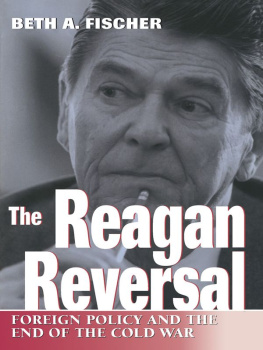
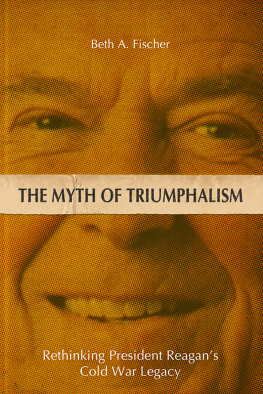
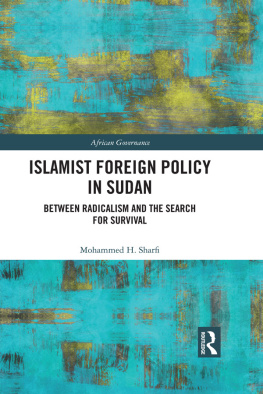

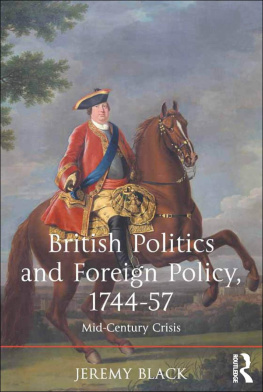
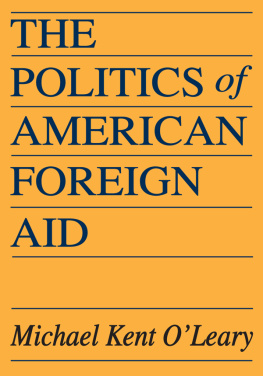
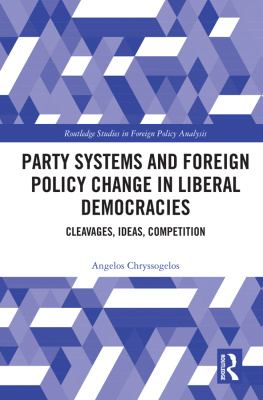
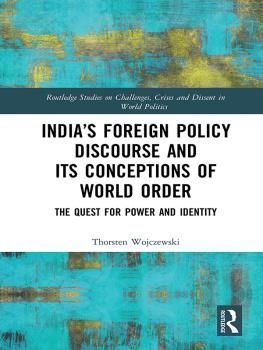

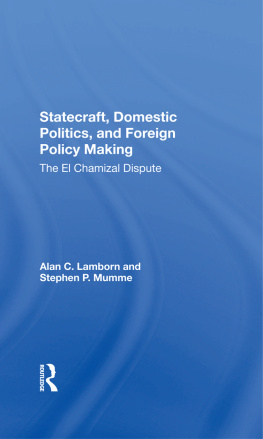
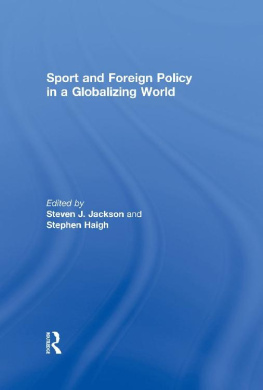


 This paper meets the requirements of the American National Standard for Permanence of Paper for Printed Library Materials, Z39.48, 1984.
This paper meets the requirements of the American National Standard for Permanence of Paper for Printed Library Materials, Z39.48, 1984.